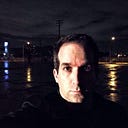Protect Your Future Self: 11 Key Actions
A Checklist for Vital Documents, Health Preparations, and Legal Protections

by @rahaeli.bsky.social (reprinted from https://bsky.app/profile/rahaeli.bsky.social/post/3labvxce57a2r with permission)
Right. Here’s your to-do list for the next two months to put you in the best possible position to survive what’s coming:
1. Renew your passport (or apply for a passport) this week even if it is not expiring in the next four years. Renewing early will give you the maximum 10-year validity period.
2. If you don’t have a valid, official copy of your birth certificate in a place you can lay your hands on it in under 15 minutes if you need it, get one. Ditto for marriage certificates and any name change documents.
3. Make an appointment with your primary care doctor right now to review your vaccination records. Get a flu shot and a COVID booster, but also anything else on the CDC schedule you’re missing: https://www.cdc.gov/vaccines/hcp/imz-schedules/adult.html
You should get Tdap if it’s been more than five years (or you don’t remember how long it’s been), MMR if you haven’t had a single adult booster, shingles if you’re near 50, pneumococcal if you have any underlying conditions, and Hep A&B if you haven’t had them already.
4. If you can, consider getting vaccinated for certain diseases that happen when sanitation or public health breaks down: typhoid and cholera in particular. NB: the US does not include these vaccines in the schedule, your insurance probably won’t cover them, and you will need a travel health clinic.
We have used www.passporthealthusa.com before for travel and they’re pretty decent. Save the yellow booklet with the vaccination records and put it in the same storage spot you keep your passport and birth certificate in.
5. If you have a uterus and are not actively trying to get pregnant right this minute, make an appointment right now with your OB-GYN to have an IUD placed. If you already have an IUD, unless it was changed in the last year or two, make an appointment right now to have it changed.
6. If you have a uterus and don’t want future pregnancies, consider trying to find a sympathetic GYN who will help you convince the insurance company that a hysterectomy is medically indicated: it’s hard but possible, especially if you have a documented history of painful or heavy menstruation.
For the best odds of success, check out the crowdsourced list of cooperative doctors from Reddit’s /r/childfree subreddit: https://www.reddit.com/r/childfree/wiki/doctors/
7. If you produce sperm and don’t want additional children, or are regular sexual partners with someone who has a uterus even if they are using long-acting birth control, consider a vasectomy. They’re easier to get than hysterectomy or tubal ligation, because of course they are.
8. If you have a family history of cancer, get a baseline screening for it: mammogram for breast cancer, colonoscopy or Cologuard for colon cancer, dermatologist visit with full-body exam and documentation of all skin abnormalities for skin cancer, etc.
9. If you have a family history of other issues that they can screen for, get the screening: if you have a family history of heart disease see a cardiologist, of brain aneurysm consider having a magnetic resonance angiogram (MRA) scan, etc.
(Hilariously, sigh, I was about three years shy of my next recommended-every-decade MRA and we were just about to schedule it a few years early because I have been having a few symptoms that are benign in 99% of people but are concerning with my severe family history of cerebral aneurysm.)
10. Begin making plans now for what you will do if you are without power and running water for an extended period of time, especially if you’re in a “blue” state that will be deliberately starved of recovery resources if a natural disaster hits. This includes food, drinkable water, and medication.
(Yes, I know it’s difficult and overwhelming to think about and that if you’re on a tight budget or you take scheduled meds or your meds need a cold chain or expire quickly, it’s difficult to prepare. Do what you can.)
11. Especially if you are in a same-sex marriage or are not married to your long term domestic partner, make an appointment with an estate planning lawyer to draw up an estate plan including a will, an advance directive, and all necessary powers of attorney.
Even if you’re young, even if you’re healthy, even if you trust your family to not be a problem, get the paperwork handled now so that your partner is your legal proxy. If money is short, you can DIY things in some states, but if you can afford it, get it done by a lawyer for maximum protection.
This is especially critical if you’re disabled, and even more critical if you’re disabled and estranged from your legal next of kin or your next of kin disapproves of your partner or relationship. It’s also vital if you’re trans or otherwise LGBTQ+.
For LGBT people in non-heterosexual marriages, make your plans assuming US v Windsor and Obergefell v Hodges will be overturned, the federal government will stop recognizing anything but heterosexual marriage, and in the worst case scenario individual states will be prevented from allowing them too.
This will mean a return to the pre-2013 scenario where you need to engage in complex legal structures to make sure you and your partner have as much protection as you can get. Many of the legal benefits of marriage ( https://en.m.wikipedia.org/wiki/Rights_and_responsibilities_of_marriages_in_the_United_States ) can’t be approximated through other means —
— but there are clever ways to do some of them such as next of kin provisions, stepparent rights, medical decision making, custodial issues, etc. Check with your elder queer folks and see what provisions we used to set up and look for the in-community lawyers who used to specialize in those things.
As I’ve been writing this thread, lots of people have been replying with all the reasons they can’t do one or more of these things (and that reason is usually “money”) and look, I get it, shit is going to be fucked and a lot of people are terrified this morning.
I know shit is fucked and a lot of people are terrified this morning. I am right there with you. This list is a collection of actions to put you in the best possible position for the upcoming inevitable destruction. If you can’t do all of it, do what you can. Pick one thing on the list and do that.
If you are financially comfortable, do what you can to help people who aren’t: you can start by going to GoFundMe and searching for “passport” or “birth certificate” and find a small GFM that’s close to meeting its goal to help someone near you get their documents in order.
Ditto with searching for “vaccination costs” or “name change” or any other keywords you can think of that touches on any of these issues. Find an organization in your community that does vital records assistance — usually they’re orgs that fight homelessness — and give them money.
Many voter assistance orgs do vital records help as well, especially in states with strict voter ID laws. They have teams of people who are experts at navigating complex scenarios and can help get people started on fixing whatever is fucked, and they can always use money to do it.
If you don’t have money but you do have time, find an organization that’s doing the work and see what their volunteer options are. Are you a whiz at navigating bureaucracy? Go volunteer with your local housing organization to help people get their vital records. Etcetera.
None of us can solve everything, but the next four years and beyond are going to be grim and awful and a lot of people are going to suffer, and the more we can build community and help each other, the more of us who will have a better chance to get through it. Pick a spot, any spot, and get started.
Appending to thread because it’s useful: a link to information for vital records requests in all 50 states https://www.cdc.gov/nchs/w2w/index.htm?CDC_AA_refVal=https%3A%2F%2Fwww.cdc.gov%2Fnchs%2Fw2w.htm
© Copyright November 6, 2024, @rahaeli.bsky.social, all rights reserved
David August is an award-winning actor, acting coach, writer, director, and producer. He plays a role in the movie Dependent’s Day, and after its theatrical run, it’s now out on Amazon (affiliate link). He has appeared on Jimmy Kimmel Live on ABC, on the TV show Ghost Town, and many others. His artwork has been used and featured by multiple writers, filmmakers, theatre practitioners, and others to express visually. Off-screen, he has worked at ad agencies, start-ups, production companies, and major studios, helping them tell stories their customers and clients adore. He has guest lectured at USC’s Marshall School of Business about the Internet.
Visit us at DataDrivenInvestor.com
Subscribe to DDIntel here.
Join our creator ecosystem here.
DDI Official Telegram Channel: https://t.me/+tafUp6ecEys4YjQ1

